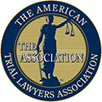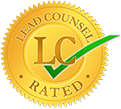
Zoloft Side Effects

Since its FDA approval in 1992, Zoloft has been widely prescribed for clinical depression in children and adults. It has also been used to treat other conditions including Obsessive Compulsive Disorder (OCD), panic disorder, Social Anxiety Disorder (SAD), and Pre-menstrual Dysphoric Disorder.
As time has passed and more has been learned about the drug, a range of adverse side effects – including birth defects in babies whose mothers used Zoloft during pregnancy – have come to light.
If you took Zoloft while pregnant and your child suffers from Persistent Pulmonary Hypertension in Newborns (PPHN) or has insomnia, excessive agitation or feeding problems, please contact The Driscoll Firm, LLC, at 314-932-3232 for a free consultation regarding your legal rights, including the possibility of a lawsuit to obtain compensation. It is not too late to get the help you and your child need.
Side Effects of Zoloft
The most serious side effects involve potential harm to the fetus when pregnant mothers take Zoloft. A 2006 FDA Alert warned the public of a heightened risk of PPHN in babies exposed to Zoloft in utero. PPHN is an otherwise rare disease that constricts the blood vessels connecting the heart to the lungs. It can lead to cardiac problems and death.
According to a report in the New England Journal of Medicine, infants born to mothers who took Zoloft and other antidepressants after the completion of the twentieth week of gestation were six times more likely to have PPHN than infants who were not exposed.
Zoloft has a risk of dependency, and some babies have withdrawal symptoms that persist for a few days after birth. These symptoms include:
- Insomnia
- Excessive crying
- Increased agitation
- Irregular feeding behavior.
In 2006 the FDA warned of an additional risk of Zoloft when taken with certain other drugs, most notably migraine medications called triptans. In combination, Zoloft and triptans can produce a life-threatening condition known as “serotonin syndrome.” This can cause symptoms such as:
- Respiratory failure
- Coma
- Mania
- Hallucinations
- Confusion
- Dizziness
- Hyperthermia
- Hypertension
- Sweating and trembling
- Ataxia
Beginning in 2004, the FDA has issued warnings that Zoloft can increase the risk of suicidal thoughts and behaviors, with a pronounced risk for children. Consequently, the FDA asked Pfizer to include a “Black Box” warning on the drug label pointing out these risks.
Contact a Zoloft Litigation Lawyer Today
Babies born with PPHN or other defects as a result of Zoloft can have medical expenses and special needs. The Driscoll Firm, LLC, might be able to help relieve some of that burden on you. You might be entitled to compensation for past and future medical expenses, including both hospital and out-patient needs, as well as for pain and suffering.
Call 314-932-3232 and talk to an experienced injury lawyer at The Driscoll Firm, LLC, about your legal rights today.
For more information:
- FDA Alert – neonatal PPHN
- FDA black box warnings
- FDA Public Health Advisories – Zoloft and depression/suicidality







